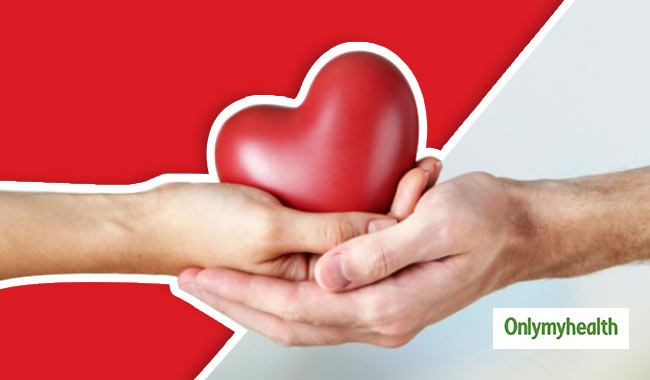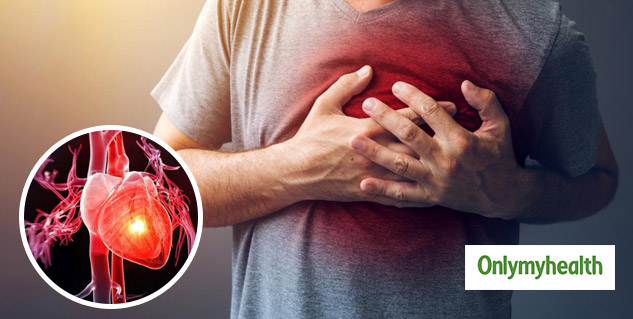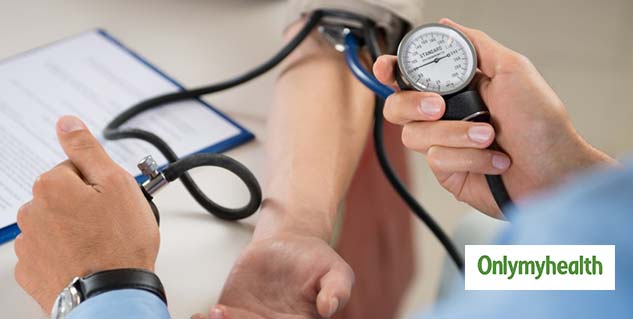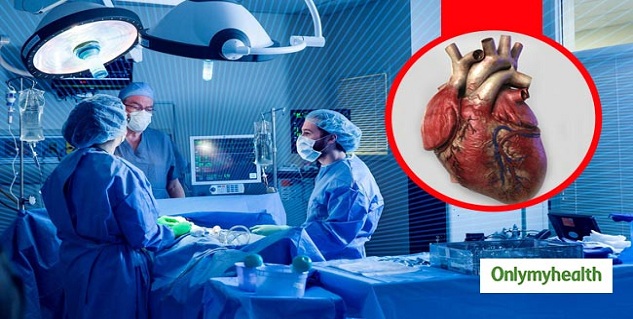
Heart diseases basically include conditions that affect the heart, such as coronary heart attack, congestive heart failure, and congenital heart disease. The total number of deaths due to cardiovascular diseases is alarming. Heart Disease is the number one cause of death in the world, according to WHO (World Health Organisation). It was reported that around 17.7 million people die of cardiovascular diseases in a year.
Types of Heart Diseases

There are many different types of heart disease. Some of these diseases are congenital but a majority of them take time to develop and affect people later in life. Some of the most common heart diseases are:
Coronary Artery Disease
Coronary artery disease (CAD) or coronary heart disease is caused due to plaque build-up inside the coronary arteries. The coronary arteries provide oxygen-rich blood to the heart muscle. The heart muscle needs a constant supply of oxygen-rich blood to function appropriately. Any interruption in the blood supply can cause damage to the heart muscle. The amount of damage caused depends on the size of the region supplied by the blocked artery and other factors such as the time between injury and treatment.
Also read: Expected Duration of Coronary Artery Disease
Arrhythmia
Arrhythmia means abnormal heart rhythms. These are feelings that your heart is skipping a beat, fluttering, or beating too hard or too fast. They can lead to symptoms such as dizziness, fatigue, shortness of breath or chest pain. If left untreated, arrhythmia can be life-threatening.
Congenital Heart Defects
Congenital heart defects are problems with the heart’s structure that are present at birth. These defects change the normal flow of blood through the heart. Our heart has two sides, separated by an inner wall called the septum. With each heartbeat, the right side of your heart receives oxygen-poor blood from your body and pumps it to your lungs. The left side of your heart receives oxygen-rich blood from your lungs and pumps it to your body. It is also known as ischemic heart disease.
Atherosclerosis
This is a disease in which plaque builds up inside the arteries, causing them to harden. Arteries are the type of blood vessels that take oxygen-rich blood from the heart to all parts of the body. Plaque formed in the arteries is made up of fat, cholesterol, calcium and other elements present in the blood. The build-up of the plaque occurs over many years. The plaque hardens slowly and causes the arteries to lose their elasticity. It also causes narrowing of the arteries. This leads to a reduction in the flow of oxygen-rich blood to your organs and other parts of the body.
Cardiomyopathy
Cardiomyopathy refers to the medical condition of the heart in which the heart muscle enlarges and becomes thick or rigid. In rare cases, the muscle tissues inside the heart get replaced by the scar tissue. Typically, cardiomyopathy is a group of diseases that are related to the heart muscle and each type has different causes, symptoms as well as treatments.
Heart Infections
Heart infections may be caused by bacteria, parasites, or viruses. It is used to describe conditions such as myocarditis and endocarditis.
Symptoms of Heart Disease

Coronary Artery Disease
Symptoms of coronary artery disease depend on the severity of artery blockage. Many people may only fell unwell or have symptoms such as indigestion when they are actually having symptoms of CAD.
Some of the symptoms of coronary artery diseases include:
- Profuse sweating
- Nausea
- Chest pain on the left side associated with difficulty in breathing or shortness of breath
- Physical exertion due to climbing stairs, doing exercise, etc.
- Shortness of breath or difficulty in breathing on exertion
- Some people may experience back pain, shoulders, or jaw pain, especially on the left side either during exertion or at rest
- Rapid or strong heartbeats
- Unexplained fatigue or tiredness on exertion or at rest
- Dizziness, light-headedness or fainting
- Irregular heartbeat
Arrhythmia
Arrhythmia causes symptoms which may not be very evident. It is possible that you may see no symptoms at all. A health care provider can detect a problem with your heartbeat during a physical exam. The symptoms of arrhythmia include:
- Pounding in the chest
- Dizziness or the feeling of light headedness
- Breathlessness
- Discomfort in the chest
- The feeling of a skipped heartbeat or palpitations
- Fatigue or weakness
Congenital Heart Defects
Many congenital heart defects have few or no signs or symptoms. Some heart defects do have signs and symptoms depending on the number, type, and severity of the defects. Severe defects can cause signs and symptoms, usually in newborns. These signs and symptoms may include:
- Poor blood circulation
- Fatigue
- Cyanosis (a bluish tint to the skin, lips, and fingernails)
- Rapid breathing
- Irregular heart rhythm
Atherosclerosis
A mild form of atherosclerosis usually doesn’t cause any symptoms. The symptoms do not appear until an artery is so clogged that it can’t supply the adequate blood to the organs and tissues of the body. Symptoms depend upon the severity of the condition:
- Sudden numbness, weakness in your arms or legs
- Chest pain or pressure
- Pain in the leg when walking
- High blood pressure
- Kidney failure
- Erectile dysfunction, low blood flow to the vagina
Cardiomyopathy
Cardiomyopathy refers to the medical condition of the heart in which the heart muscle enlarges and becomes thick or rigid. Symptoms of this disease include:
- Shortness of breath
- Pounding or rapid pulse
- Bloating
- Fatigue
- Swollen legs (ankles and feet)
Heart Infections
Symptoms of heart infection include:
- Skin rash
- Fever
- Coughing
- Chest pain
- Chills
Risk Factors & Causes of Heart Diseases
Coronary Artery Disease
- Family history of the disease
- Obesity
- Uncontrolled diabetes mellitus
- Lack of physical activity
- Continuous stress
- Excessive alcohol consumption
- Sedentary Lifestyle
- High cholesterol
- High blood pressure
Arrhythmia
There are various factors contributing to a slow or an increased heart rate. These causes include:
- Injury caused by a heart attack
- Imbalance of electrolyte in the blood
- Changes in the muscle of your heart
- Coronary artery disease
- The healing process that takes place after a heart surgery
- Abnormal heart rhythms that can also take place in healthy hearts
Congenital Heart Defects
It not always clear why a baby suffers from a congenital heart defect. Things that trigger the disease are:
- Taking certain medications or alcohol during pregnancy
- Problems with genes or chromosomes in the child, like Down syndrome
- If a woman in her first trimester of pregnancy suffers from a viral infection
Atherosclerosis
Atherosclerosis usually starts when you are a young adult and increase with age. The exact cause of atherosclerosis is not known, but factors that increase the risk of atherosclerosis include:
- Family history of atherosclerosis
- High blood levels of LDL cholesterol
- High blood pressure or hypertension
- Smoking and alcohol consumption
- Diabetes
- Being obese or overweight
- Eating high-fat diet
- Sedentary lifestyle
- Eating high-fat diet
Cardiomyopathy
- Diabetes
- Thyroid disease
- Viral infections of the heart
- Alcoholism
- Severe coronary artery disease
- Drugs that damage the heart
- Heart valve abnormalities
Heart Infections
There are two types of heart infections: myocarditis and endocarditis.
Causes of Myocarditis
- Epstein - Barr virus
- Hepatitis C
- Herpes
- HIV
- Parvovirus
- Chlamydia
Symptoms of Endocarditis
- Oral cavities
- Catheters
- Needles used for tattoos
- Dental procedures
- Drug use
- Congenital heart defects
- Damaged heart valves
- Artificial heart valves
Important Tests for your Heart
Echocardiography
When ultrasound is used to examine the cardiovascular anatomy and hemodynamics, it is known as echocardiography. The procedure is performed by a cardiac sonographer who has specialised in the field of echocardiography working in close contact with the patient throughout the procedure. The echo can show the areas of heart muscles which are not contracting properly due to poor blood caused by an injury or a heart attack. With help of an echo the blood clots formed inside the heart, a fluid buildup in the pericardium, and problems with the aorta can be detected.
ECG
An electrocardiogram is done to record the electrical activity of the heart. The EKG machine detects the electrical impulses that contract the heart. The EKG helps in identifying the cause of symptoms such as palpitations or chest pain. The EKG is a painless and harmless test.
Cardiac CT
Cardiac computed tomography (CT) is a painless test that uses an x-ray machine to take clear, detailed pictures of your heart. This common test is used to look for problems in the heart.
Heart MRI
Magnetic resonance imaging or MRI is a noninvasive and effective technique that creates detailed scans of the organs and tissue, without any risk. Since it is a noninvasive test method, it doesn't involve any discomfort or pain. Cardiac MRI is a safe test that allows cardiologists to see the heart in detail. It provides more detailed scans of the heart than any other imaging technique that can be used to scan the heart. Cardiac MRI is a fast and accurate test to detect areas of the heart that aren't functioning properly, are scared or have a poor blood supply.
Nuclear Heart Scan
A nuclear heart scan is a test that uses a safe, radioactive substance to provide important information about the health of your heart. The radioactive substance also called a radiotracer is injected into the bloodstream through a vein where it travels to the heart and releases energy. A special camera outside of the body detects the uptake energy of the radioactive substance and creates pictures of the heart. Although the test uses a safe radioactive substance, it may have some small risks associated with it.
Treatment of Heart Diseases

Heart diseases are a result of a terrible lifestyle, and genetic factors do come into play at times. Here are some options available for you:
Lifestyle Changes
If you are suffering from a heart disease then you will have to opt for lifestyle changes, regardless of the fact whether your heart disease is mild or severe. Your doctor will definitely recommend lifestyle changes for you which includes following low fat and low sodium diet, exercising for at least 30 minutes every day, quitting smoking, and limiting your intake of alcohol or in some cases no alcohol at all. All of these changes that you do in your daily life are very necessary for you to treat or sometimes cure heart diseases.
Procedures and Surgery
There are two types of surgeries that your doctor would recommend: angioplasty and Coronary Artery Bypass Grafting.
Angioplasty is basically a nonsurgical procedure and it opens the blocked or narrowed coronary arteries, this is also called percutaneous coronary intervention (PCI). Here a thin and flexible tube with a balloon or some other device at the end is threaded through the blood vessel to the narrowed coronary artery. Then the balloon is inflated to compress the plaque against the wall of the artery. This process has the ability to improve the blood flow to your heart and relieve chest pain.
Coronary Artery Bypass Grafting is a surgery that removes arteries or veins from other areas in your body and then uses them to bypass narrowed or blocked coronary arteries. The surgery can be effective in improving blood flow to your heart, relieve chest pain, and possibly prevent a heart attack.
Cardiac Rehabilitation
Cardiac rehabilitation may be prescribed to you by your doctor after angina or angioplasty, almost everyone who has CHD can benefit from cardiac rehab. Cardiac rehabilitation is a beneficial medically supervised program that can improve the health and well-being of people who have heart problems.
Medicines
Lifestyle changes alone can’t cure the disease, you need to take medicines as well. Medicines can be of good help for the following reasons:
- They lower your LDL cholesterol, blood pressure, and other CHD risk factors
- They reduce your heart’s workload and relive CHD symptoms
- They decrease your chance of having a heart attack or dying suddenly
- They prevent or delay the need for a procedure or surgery
- They prevent blood clots







